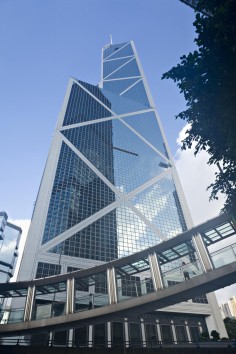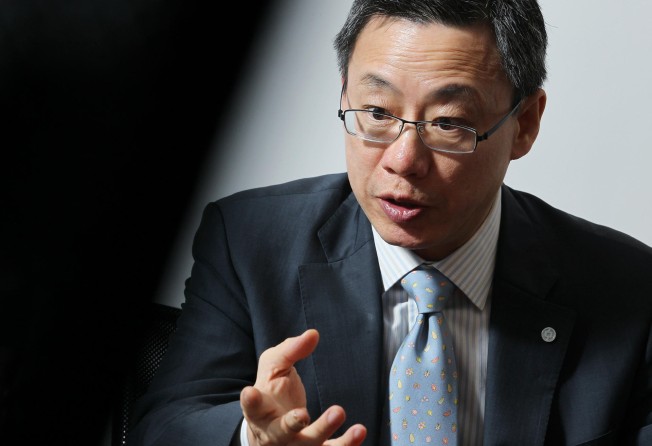
Bank of China targets yuan markets in West
Asset management arm of mainland lender sees London, Paris and Luxembourg as promising new markets for the sale of yuan products

Bank of China's Hong Kong-based asset management arm is in talks with several European banks to distribute its yuan products in London and Paris, as it attempts to build an international customer base amid intensifying competition at home.
BOCHK is widely-known for its high-yield "dim sum" bond fund (yuan-denominated bonds sold outside China), which has outperformed its peers since 2012 globally; and now it hopes to cultivate another star fund with its newly-obtained 800 million yuan quota under the so-called RQFII (Renminbi Qualified Foreign Institutional Investor) scheme.

Separately, it is also applying for an RQFII quota to launch an onshore bond fund.
The three-year-old firm is aiming to expand its customer base outside of Hong Kong and into London, Paris and Luxembourg. To achieve this it aims to build several distributing partnerships with local commercial and private banks.
The target cities held the top three yuan deposit bases in Europe in July, with London yuan deposits at an estimated 35 billion yuan, Paris holding 10 billion yuan, and Luxembourg 40 billion yuan.
"At the initial stage, fund managers with well-developed distribution channels will be the early winners in yuan business," BOCHK Asset Management chief executive Au King Lun told the South China Morning Post last week.
"We are all babies learning to walk without a long-term track record."
Au's ambitious plan to expand the manager's yuan business comes as a cross-continental fight for yuan deposit holders is set to kick-off among fund managers based in Hong Kong, London and Singapore, after the Beijing government committed to allowing managers in the latter two cities to buy up mainland bonds and stocks.
Beijing vowed to grant 80 billion yuan and 50 billion yuan respectively to London and Singapore managers under the so-called RQFII (Renminbi Qualified Foreign Institutional Investor) scheme to invest in the onshore market. To date only Hong Kong-based managers have been granted quotas, amounting to a combined 134.3 billion yuan (HK$170.06 billion) as of September.
"No competition. No innovation," remarked Au. With more players joining the battle for fresh yuan funds, competition was now growing fiercer, he added, "but the overall market will grow bigger and investors will be able to have different-styled mangers to choose from".
Confidence about RQFII products has been sluggish among consumers to date, due to the under-performance of most available products. A sluggish macroeconomic environment amid the mainland's economic slowdown is also putting the managers under pressure to attract capital.
In the circumstances market sentiment was now the key hurdle to growing yuan funds, said Au, who added that concerns over shadow banking in China had been exaggerated by investors who tended to compare China's financial system to that of the Western world.
"The risks some foresee are for a slowdown in the Chinese economy and problems like shadow banking. But these problems are exaggerated," Au said, adding that many China-related wealth management product are still generating a healthy return.
Unlike its peers who are launching exchange traded funds that passively track the mainland equity market, BOCHK was looking to position itself as a fully active manager.
Au, who previously headed Financial Risk Management - a global fund of Asian hedge funds - said BOCHK would seek to differentiate itself from its peers with "an ability to combine a quantitative approach with an active investment-decision making process".
"We are quite unique because we apply hedge fund tactics in long-only funds. The market already has a lot of competent passive managers," he said.
The firm's high-yield dim sum bond fund returned 29 per cent last year and 7 per cent in the year to date, which ranks it as the leader in its class.